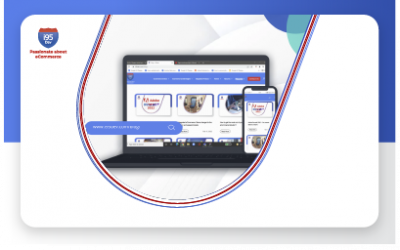Supply chain challenges are prevalent across the market these days. Transport vehicles are parked idle, and warehouses are packed with undelivered goods. The COVID-19 pandemic has not only disrupted supply chains but restructured them. Disruptions across the globe have resulted in shortages of everything from consumer to industrial products. Costs are skyrocketing for everything from transportation to labor, resources are scarce, and meeting the rising demands with limited capacity is a big challenge.
On the one hand, the pandemic forced some markets to shut down, on the other, few witnessed an uptick. For instance, a 69% decrease in the US restaurant dine-in business was recorded while the grocery sector noted a whopping double-digit growth.
Market analysts state that now more than ever, maintaining logistics flexibility is necessary for reducing disruption to supply chain services. It’s time business leaders took quick decisions and actions to streamline business operations via integrated eCommerce to serve their customers and support their employees. Amidst the chaos created by the COVID-19 pandemic, transportation partners with integrated eCommerce solutions are managing fairly to keep the supply chain flowing.
Major supply chain challenges
Let us have a look at the major supply chain challenges that have gravely impacted business globally:
- Supply chain and operations are becoming more expensive (for example, less global and eCommerce fulfillment costs) and is the reason for a company’s highest costs.
- Supply chains are breaking down when confronted with multi-country disruptions as they lack global resilience.
- Addressing customer demands for customization and personalization is a challenge due to lack of flexibility in the supply chain system.
- The expensive nature of IT systems, their lack of flexibility, and their unusual reliance on legacy technologies add to supply chain disruptions.
- The supply chain and operations system depends mainly on the human workforce, which cannot be met due to severe talent gaps.
Overcoming supply chain challenges with integrated eCommerce
- Identify and eliminate disruptions– Supply chains are complex systems. For businesses to stay afloat and succeed, it is essential to monitor supply chains, predict upcoming disruptions, and keep customers informed at every step. Efficient supply chain monitoring tools are necessary for keeping warehouses, logistics, and shipping synced. Companies should use an integrated eCommerce solution to sync data between business systems – eCommerce platform, CRM, ERP, and other applications. Integrated systems empower your customers and provide them with insights into your supply chain before placing orders. With the increased flow of information, businesses are enabled to make informed decisions and enhance customer experience.
- Increase agility and flexibility – Supply chain challenges are here to stay, and businesses must learn to overcome them and move forward. Integrated eCommerce solutions can enhance data visibility and make informed sales predictions considering multiple supply chain elements simultaneously. Considering the uncertain times, businesses are bound to make rapid sourcing ability, fulfillment flexibility, and capacity changes, a must-have for many supply chains. An integrated eCommerce solution that includes flexibility to customize and extend is appropriate for the task. An integrated eCommerce ecosystem automates and simplifies complex processes, reduces errors, and helps businesses adapt to the changing trends, consumer behavior, and market dynamics.
- Optimize businesses – Effective supply chain management in eCommerce helps in business optimization. Integrated eCommerce can help you achieve it. eCommerce integration benefits suppliers across multiple aspects such as automating business processes, maintaining better contact with business partners, performing intelligent inventory management, and proactively strategizing for demand dips and surges.ccording to a research report,98% of manufacturers are currently strategizing or implementing an integrated eCommerce solution. They have gained by integrating eCommerce in their customer journey while seamlessly managing production and supply chain.
- Be future-ready – Improving automation capabilities is the essential technology for companies to overcome future supply chain disruptions. With the help of an eCommerce integrated solution, you can reduce latency and time constraints, increase forecasting accuracy, and allow improved planning and risk mitigation. In addition, the real-time visibility of data offered by an integrated eCommerce ecosystem helps in establishing various contingency plans and finding alternative delivery methods to reach end customers easily and resolve the multiple issues arising inevitably due to the COVID-19 pandemic.
Are you looking for the right integrated eCommerce solution for your business? Contact us right away!
Recent Blogs
Understanding Shopify Pricing Plans and TCO for an eCommerce Store
Understanding Shopify Pricing Plans and TCO for an eCommerce Store Author Category Share Shopify is one of the most adopted eCommerce platforms, offering rich features and designed to...
Omnichannel Retail – Definition, Significance, Benefits, and Use Cases
Omnichannel Retail – Definition, Significance, Benefits, and Use Cases Author Category Share The retail landscape is highly competitive due to technological advancements and changing...
Understanding BigCommerce 2024 Pricing and TCO for an eCommerce Store
Understanding BigCommerce 2024 Pricing and TCO for an eCommerce Store Author Category Share Starting an online store with BigCommerce is an exciting venture. As with any significant business...





